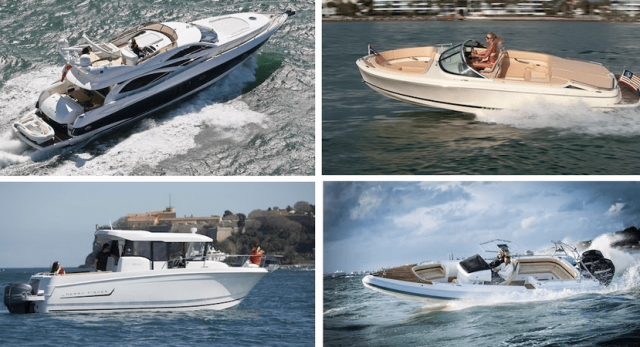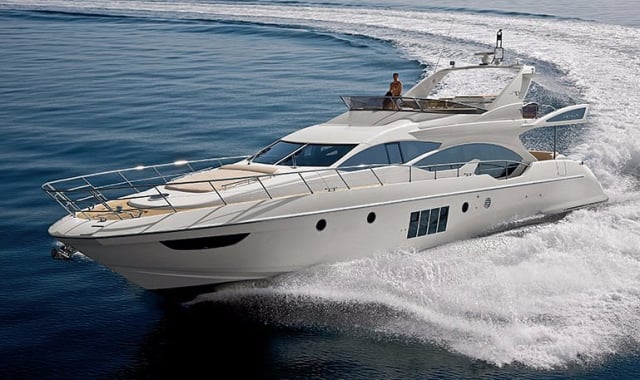Buying a boat is the dream of many sea lovers, whether to enjoy relaxing trips, practice water sports or even live on board. However, this investment not only involves a considerable financial outlay, but also a series of decisions that can make the difference between a pleasant experience and one full of problems. Many people make mistakes when choosing their boat, either due to ignorance, lack of planning or excessive enthusiasm.
One of the biggest pitfalls when purchasing a boat is not clearly defining its intended use. Some people buy models that are larger or more powerful than necessary, while others opt for cheaper options without considering whether they actually meet their expectations. In addition, associated costs such as maintenance, storage and permits are often underestimated, which can lead to financial complications down the road.
Another common problem is the lack of inspection and testing before purchase. A boat may look impeccable on the outside, but have mechanical or structural problems that only an expert eye can detect. It is also essential to review the legal documentation to avoid unpleasant surprises, such as outstanding debts or problems with the boat's registration.
You may also be interested in: 10 reasons to buy a boat
The 5 most common mistakes when buying a boat and how to avoid them
1. Not clearly defining the use of the boat 
Buying a boat without a clear idea of what it will be used for is one of the most common mistakes. Many people are carried away by the appearance of the boat or by recommendations from others, without analyzing whether it really suits their needs. A boat designed for long voyages is not the same as one designed for weekend recreational activities.
It is essential to consider factors such as the type of boating that will be done, the number of regular passengers and the water conditions in which the boat will be used. Some models are designed for rough seas, while others are more suitable for calm waters. Making a decision without evaluating these aspects can lead to a purchase that is not functional.
To avoid this mistake , it is advisable to make a list of priorities and compare options before making a decision. Consulting with experts or owners of similar boats can also provide valuable information. A prior analysis will allow you to choose the right boat and avoid regrets in the future.
2. Not setting a realistic budget 
You may also be interested in: Documentation and procedures for buying a boat
One of the main mistakes when buying a boat is to think only about the purchase cost and forget about the additional expenses involved in its maintenance. Unlike a car, boats require operating costs that can be high, such as fuel, storage and periodic repairs.
Additionally, it is important to consider expenses such as insurance, boating permits and any additional accessories that may be required. Often, buyers underestimate these costs and end up in a difficult financial situation or even resell the boat sooner than expected.
To avoid this problem , a detailed calculation of all costs should be made before purchasing. Establishing a budget that includes long-term expenses will allow for a more informed and sustainable decision to be made over time.
3. Not performing a professional inspection 
Many people rely on their own judgment when purchasing a boat and skip a professional inspection. This can be a costly mistake, as boats can have hidden flaws that are not obvious to an inexperienced buyer. Structural problems, engine failures, or damage to the electrical system are some of the aspects that require a specialist inspection.
A well-maintained boat not only guarantees greater safety, but also avoids unexpected expenses for future repairs. Some sellers may cover up defects to make the boat look in better condition than it really is. Without a technical inspection, the buyer runs the risk of purchasing a boat with problems.
To avoid this situation , you should always hire a certified marine surveyor before making the purchase. This professional will evaluate the condition of the hull, machinery and other essential elements, ensuring that the investment is safe and reliable.
4. Not testing the boat before buying 
You may also be interested in: Best-selling boat brands
Just as you wouldn't buy a car without test-driving it, the same applies to a boat. However, many buyers overlook this crucial step and face unpleasant surprises after they've closed the deal. A boat may look perfect on the dock, but behave differently on the water.
Carrying out a test ride allows you to check the engine performance, the stability of the boat and its comfort. It also helps to identify strange noises, unusual vibrations or difficulties in manoeuvring. Ignoring this phase can lead to buying a boat that does not meet the buyer's expectations.
To avoid this mistake , it is advisable to request a test before making the purchase. During navigation, key aspects such as speed, rudder response and ease of control in different water conditions should be evaluated. A proper test can make the difference between a successful purchase and a frustrating experience.
5. Choosing the wrong boat due to lack of knowledge 
Lack of information is a recurring problem among boat buyers. There are different types of boats, each designed for specific purposes, and choosing the wrong one can lead to an unpleasant boating experience. Buying without knowing the features of each model is a mistake that can be avoided with prior research.
For example, a sailboat is not suitable for those looking for speed, just as a sports boat may not be the best choice for long trips on the open sea. In addition, certain boats require specific licenses or technical knowledge that some buyers are unaware of until after they have purchased the boat.
To avoid this problem , it is advisable to learn about the different types of boats and consult with experts in the sector. Attending boat shows, reading reviews and speaking with experienced owners can provide a clearer view on which is the best option according to individual needs.
We invite you to take a look at other articles at: https://yate.co/en/blog


